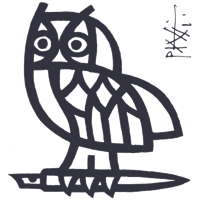Parties and Party System in Germany after 1990

From »illegal« opposition to the Volkskammer elections in 1990 to the elections of the reunited German Bundestag – the democratisation process in the GDR is by now well-researched. In contrast, the long-term repercussions of implementing West-German party structures for the emergence of a democratic culture on the territory of the former GDR remains controversial. In light of old Federal Republic party headquarters recruiting new political leaders and the appointment of West German officials in administration and the justice system, many people in East Germany felt reunification to be the »colonisation« of their lifeworld. This has been seen as an explanation for the poor election results of CDU, SPD, Greens and FDP in several 2019 state elections.
The research focus »Parties and Party System in Germany after 1990« explores the formation and – in the case of the SED – transformation of political parties as well as the establishment of party-political structures in the new German Länder in the wake of the 1989 system transformation. Emphasis is placed on different expectations in East and West and competing influences of West German »mentor parties« in building the »East German party system«. Furthermore, consequences and repercussions of this process on the overall German party system (co-transformation), including its increasing fragmentation, are being investigated.
Since the adoption of its »Berlin Programme« the KGParl has increasingly devoted its research efforts to studies on the »GDR and the new German Länder«. With Dominik Geppert as the new chairman of the KGParl, it was decided to expand the institute’s focus on »party research«.
Research project »Formation and Development of Parties in the New German Länder, 1989/90–2005«
Initiated by its chairman, Prof. Dr. Dominik Geppert (University of Potsdam), a major research project on the »Formation and Development of Parties in the New German Länder, 1989/90–2005« has been launched within the framework of the research focus »Parties and Party System in Germany after 1990«. The basic concept has been discussed and decided on by the members of the commission at the annual general assembly of the KGParl in May 2019. [→ concept paper (in German)]
The coordinates of the research project’s frame of reference are the changing landscape of political parties after the end of the East-West conflict throughout Europe and the specific German process of system transformation. The period under investigation ranges from the stage of party formation and consolidation after 1989, to reactions to the announcement of extensive social reforms in 2005 (»Hartz-IV shock«), which resulted in rapidly visible political changes, particularly in the new German Länder.
Cooperation with Party-Affiliated Foundations
The research project »Formation and Development of Parties in the New German Länder, 1989/90–2005« is based on the cooperation between the KGParl and party-affiliated foundations. The prospects of future cooperation were discussed at a meeting on 25 January 2019. The project is a research partnership comprising of PhD projects that are topically interrelated but follow separate application procedures, funded by the scholarship programme of the political foundations. The KGParl coordinates and manages the overall project. It supports PhD supervisors with expert advice, organises workshops and helps plan research stays.

